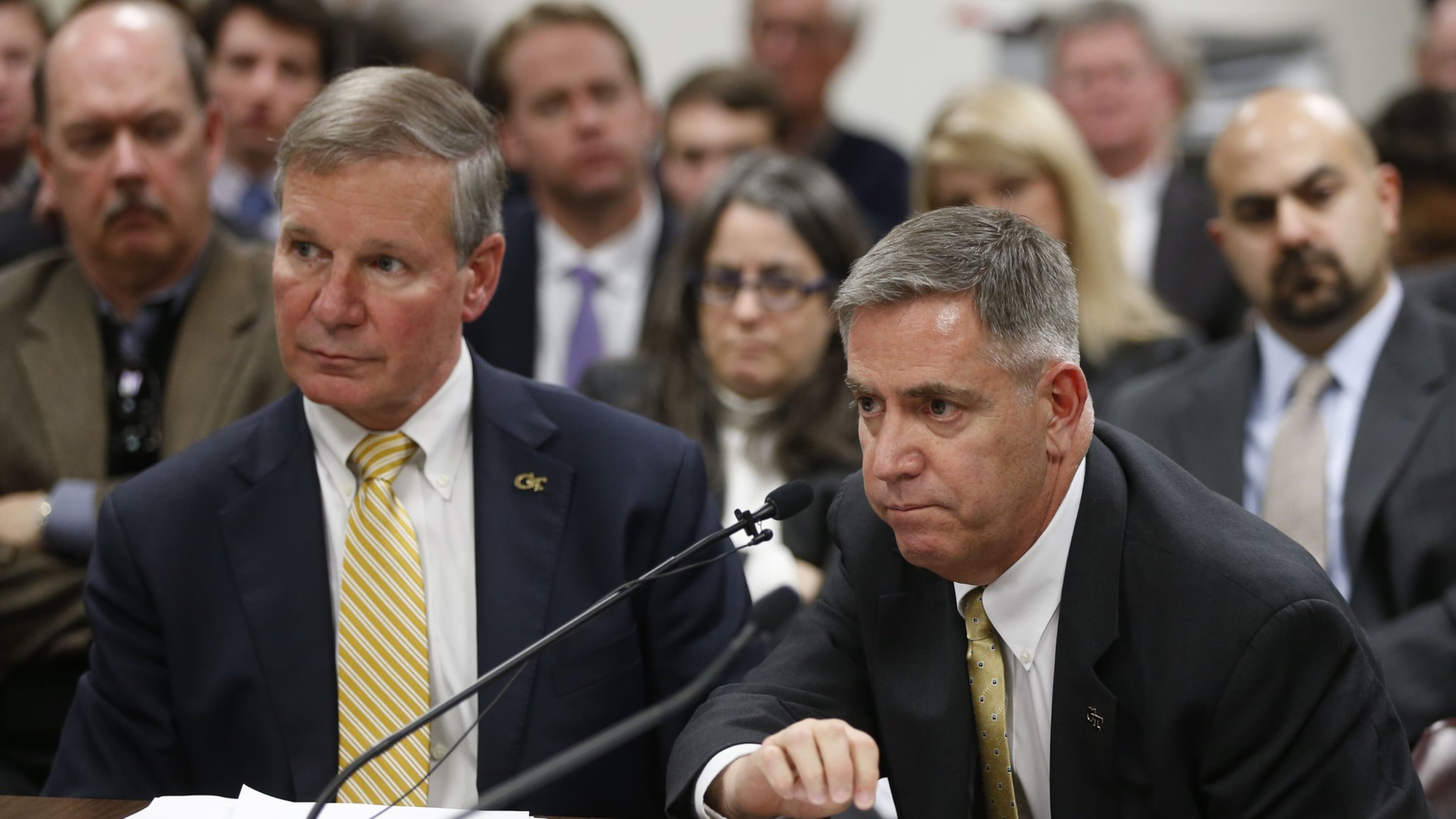Bill would restrict colleges’ response to sexual assault reports

A key state lawmaker wants to limit the ability of Georgia’s public colleges to investigate and discipline alleged campus rapists.
A bill introduced this week from state Rep. Earl Ehrhart, R-Powder Springs, would prevent schools from investigating campus sex abuse claims unless police were also involved.
It highlights a central question in such cases: should they be handled by colleges or law enforcement?
Currently, schools handle many of the cases through a secretive campus judicial process. Such involvement is mandated by federal Title IX law, although the details are largely left up to individual schools.
Many sexual assault allegations never make it to law enforcement because victims are reluctant to come forward. Campus tribunals provide a measure of accountability and require a lower burden of proof. But critics — including some students who have been kicked out of school after facing allegations of sexual assault — say the proceedings are deeply flawed and lack adequate protections for the accused.
In hearings last year, Ehrhart grilled top officials from Georgia Tech on their system. Several Tech students have sued, arguing they were forced out of the school unfairly after being accused of sexual assault.
Ehrhart chairs a House panel that oversees higher education funding. He told The Atlanta Journal-Constitution he is worried about the lack of legal protections for those accused of sexual assault.
“I want to treat these crimes with the seriousness they deserve,” Ehrhart said. “But I am not going to sacrifice due process to get there.”
Citing the lawsuits at Tech, Ehrhart also argued the policies are a financial liability for Georgia schools.
The bill would require school officials who receive information that a felony, such as rape, is committed on campus to report the crime to law enforcement. Schools could not initiate their own investigation unless police had done so. And they could not pursue final disciplinary action against a student unless a the student is convicted or pleads no contest to the charges.
The University System had little to say about Ehrhart’s bill.
“We are reviewing the legislation,” spokesman Charlie Sutlive said in an email response to questions Thursday.
But the measure is already attracting strong opposition among some advocates.
The bill is unconstitutional and conflicts with federal laws, particularly Title IX, the federal sex discrimination law, said a statement from Atlanta Women for Equality. The bill also “mistakenly conflates” the requirements for justice in the criminal system with those for university grievance procedures, it said.
“This is basically depriving the (sexual assault) victim/survivor of having a say over whether the event is public record,” Lisa Anderson, executive director of the advocacy group, told the AJC.
Anderson’s group, a nonprofit organization that provides legal advocacy for women facing sex discrimination, has helped several female students who have been victims of alleged assaults at Georgia colleges. Last summer, the group intervened on behalf of a female student in a settlement in a campus rape lawsuit against Georgia Tech that included a provision to protect her identity.
“For my clients, I fear for them,” Anderson said. “It’s such a struggle to have to tell what happened, and this (bill) is something that can have a detrimental effect on a person’s education and the entire community.
Ehrhart said the legislation was prompted, in part, by an AJC report that identified problems in how Georgia schools have handled claims of sex assault. The AJC also reported, however, that prosecutors rarely pursue campus rape charges, The cases are often complicated by drinking and conflicting evidence of consent. Last year, for instance, Fulton County District Attorney Paul Howard told the newspaper he was dropping charges in two high-profile campus rape cases at Georgia Tech and Morehouse College. His office investigated the cases for years.
Ehrhart said Thursday he also plans to push for additional funding for counseling and other services for campus sex assault victims this legislative session.
With campus sexual assault reports on the increase, the Obama administration urged colleges to get tougher on sexual assault and threatened those schools that did not comply with the loss of billions of dollars in federal aid.
It is unclear how the incoming administration of Republican Donald Trump will handle the issue.
Ehrhart has sued the federal government over the campus sex assault guidance.
The suit, filed by Ehrhart and his wife, says the department's policies have led to colleges spending taxpayer dollars unnecessarily in attempts to abide by the rules or risk losing federal funding.
Ehrhart told The AJC he is hoping to meet with Betsy DeVos, Trump’s nominee for secretary of education, after she is confirmed.




